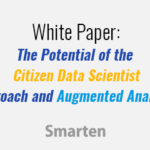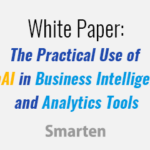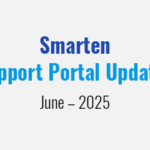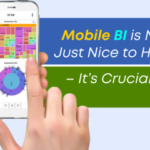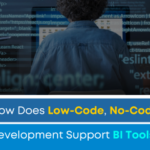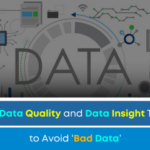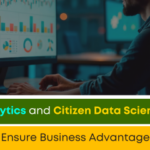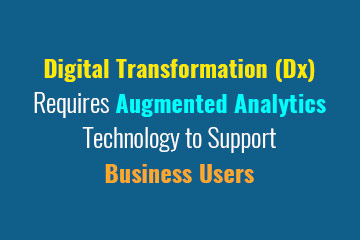
If your business has embraced the concept of Digital Transformation (Dx) and Data Literacy, it must plan for these initiatives in order to ensure that they are successful. The best way to achieve Dx and data literacy is to establish a technology environment that will support and encourage constant change and optimize resources and creativity – all in the service of supporting business goals and objectives.
A Dx and Data Literacy initiative will encompass a technology review, including an assessment and investment in tools to support team members in embracing a data-driven, fact-based process that leverages data and data literacy at every level of the organization.
Restrictive technology tools or tools designed for IT or data scientists will not advance the initiative.
If all team members and roles are to be included in the transition, the transformation must also move business users toward a Citizen Data Scientist role.
The renowned international technology research firm, Gartner, defines a Citizen Data Scientist as, ‘A person who creates or generates models that use advanced diagnostic analytics or predictive and prescriptive capabilities, but whose primary job function is outside the field of statistics and analytics.’
If the business user team is to transition to a Citizen Data Scientist role, the business must first make its systems, solutions and data more accessible and easier to understand. It must ensure performance and scalability for mobile access and create an environment where users want to adopt new tools and techniques to use in everyday tasks.
Team members must have the right easy-to-use self-serve augmented analytics tools – tools that provide guidance and auto-recommendations so users can quickly choose the right visualization techniques and the right predictive analytics without the need for data science skills. The enterprise must look for ways to break down the walls of data silos and integrate data to make it accessible with appropriate security and reporting for all manner of information sharing and collaboration.
As business users become Citizen Data Scientists and embrace the use of data to make decisions and find solutions, the business analyst and Data Scientist team will be free to work on more strategic issues. Augmented Analytics allows business users team to leverage easy-to-use tools that will build their confidence and understanding and act as training mechanisms to help them integrate data and data sharing into the daily culture.
Restrictive technology tools or tools that are only designed for IT or data scientists will not advance a Digital Transformation and Data Literacy initiative. To succeed, the business must include the assessment and investment in augmented analytics tools to support team members and encourage a data-driven, fact-based process that leverages data and data literacy at every level of the organization.
For more information about Digital Transformation and how Augmented Analytics can support the Dx initiative, explore our white papers: ‘Integrate Augmented Analytics And Digital Transformation To Achieve Continuous Business Improvement’, and ‘Preparing Your Organization For Digital Transformation And Data Literacy’.
Original Post : Digital Transformation (Dx) Requires Augmented Analytics Technology to Support Business Users!



